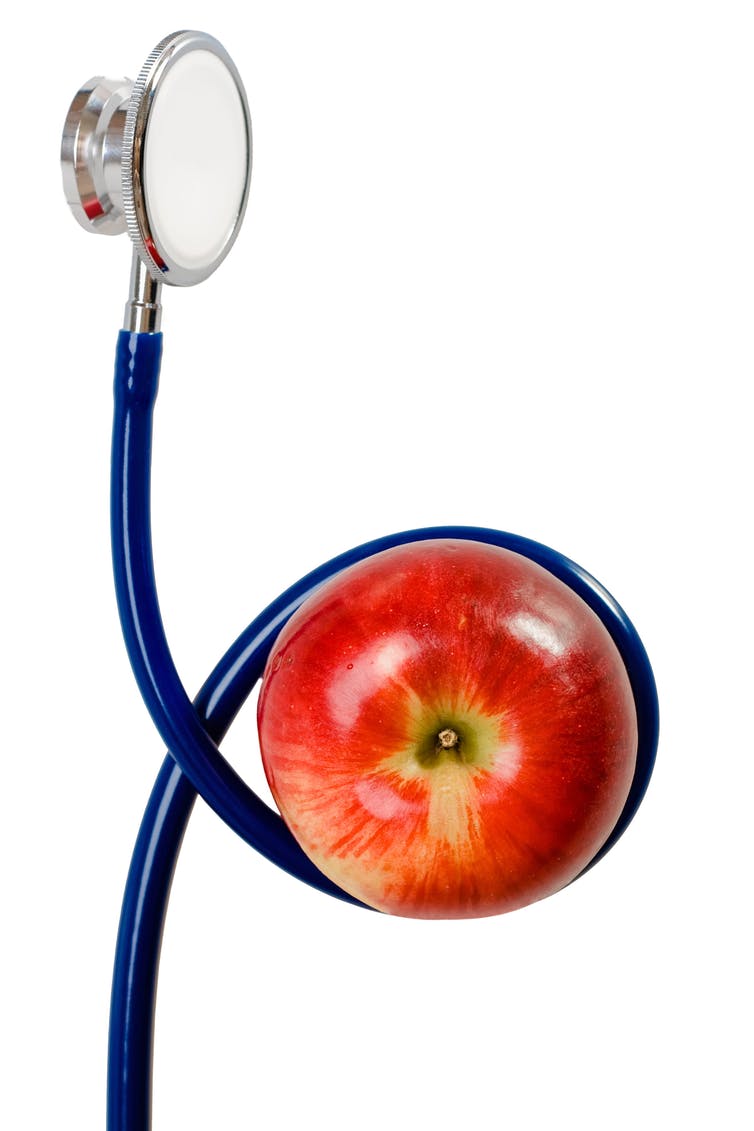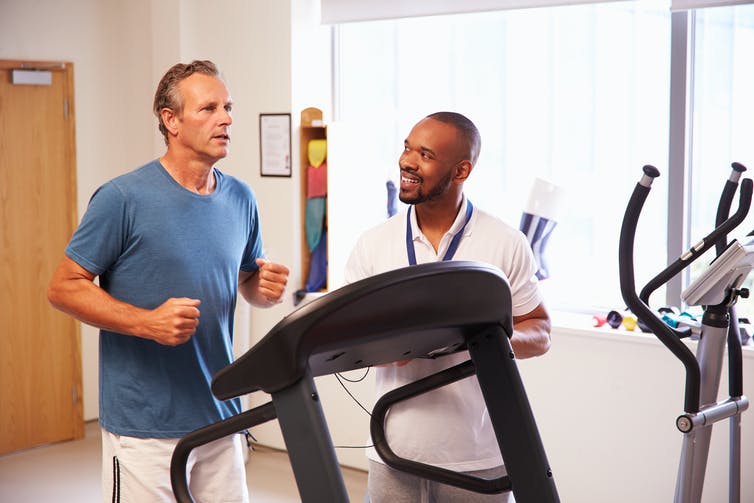
Despite all the attention on COVID-19, heart disease remains one of the biggest health threats. Indeed, many people have not taken care of their heart health during the pandemic, and are experiencing reduced quality of life because of it. If you’re reading this from the sofa with a bag of potato chips, this may include you.
Cardiac rehabilitation mitigates this, yet only 10 to 25 per cent of heart patients access it. It helps if patients and their loved ones are aware of cardiac rehab and ask their doctor for a referral, but there are established strategies to ensure patients access these programs that we desperately need to implement.
As a cardiac rehabilitation researcher for the past 20 years, I work with the preventive cardiology community to ensure more patients access these lifesaving programs.
Table of Contents
What cardiac rehab is all about
Heart diseases are chronic and without cure, so they often result in further cardiac events such as readmission to the hospital or needing a stent — a tiny tube put in a vessel in your heart muscle to keep it open so oxygen and nutrient-rich blood can flow to it. But the chances of this can be drastically lowered with the low-cost, comprehensive cardiac rehab approach.

(Piqsels)
Cardiac rehab is an outpatient chronic disease management program, offering patients hour-long sessions about twice per week over several months. Programs offer structured exercise, patient education, as well as lifestyle (such as diet, tobacco use, medication adherence) and psychosocial (things like depression, anxiety, sleep, stress, sex, as applicable) counselling. Think of it as one-stop shopping for all the proven recommendations to lower your heart disease risk, delivered in a co-ordinated way with your acute care physicians and primary care provider over time. We are the middle link in a chain that supports patients to thrive.
Cardiac rehabilitation is “not just broccoli and running shoes” as our medical director likes to say; participation reduces death and hospitalization by more than 20 per cent, and also improves well-being and supports return to desired life roles. Yet few heart patients receive it, while other heart care recommendations like medication are implemented over 80 per cent of the time.
As a cardiac rehabilitation community, we have done the research to establish what can rectify this. This includes innovative health system payment models, automatic electronic referral, clinician training courses, and tech-based cardiac rehabilitation. Unfortunately things have not changed and patients are not getting the support they need.
Paying for cardiac rehab
In Canada and other countries, health-care providers cannot directly bill government health-care systems for cardiac rehabilitation like they can for a stent or a cardiologist visit, despite all the clinical recommendations for patients to get rehab. We advocate for this reimbursement, or other innovative payment models, to make it more financially viable to offer cardiac rehab and ensure enough cardiac rehab spots for all the patients who need it.

(Shutterstock)
For example, if a patient gets a stent or heart bypass surgery, the hospital could be paid one “bundled” fee that includes money not only for the procedure, but also the rehabilitation that follows. Bundled payments that include rehab have been rolled out now for hip and knee replacements in Ontario for example, but we are still waiting for heart procedures as promised.
As a cardiac rehab advocate, I’ve heard the argument that heart risks are lifestyle-related, and government-funded health systems should not be in the business of individual health behaviour change. This is despite evidence that cardiac rehabilitation is cost-effective, results in earlier return to work, as well as reductions in deaths and repeat visits to the hospital (which are very expensive for the health system).
Moreover, the same unhealthy lifestyle behaviours that underlie heart disease are also associated with cancer, but we don’t blame cancer patients for their condition.
Arguably, it is lack of public policy — to ensure citizens have access to safe green spaces to exercise, sources of healthy food and clean air in all neighbourhoods regardless of socio-economic status, as well as better tobacco control — that leads to heart disease; so governments clearly have an important role in lifestyle change.

(Pixabay)
People need support to learn how to manage their condition and change multiple health behaviours, as well as to address their high rate of psychosocial issues that not only hinder their ability to manage their condition but also result in poorer health outcomes.
Other solutions include leveraging electronic health records so that, for example, when a heart patient gets a stent or bypass surgery, their file is flagged automatically for cardiac rehab because of its clear benefits in these patients. Systematic referrals such as these increase rehab use eight times, and this is augmented even further by training inpatient clinicians to inform and encourage patients to enrol in cardiac rehabilitation at the bedside.
Reaching the patients most in need
Finally, we can also deliver cardiac rehab broadly using technology to reach all patients in need. The 10-to-25-per-cent rates of rehabilitation use are an average. Use is even lower in certain populations such as women, rural and racialized people as well as people of low-income in Canada and around the world. And this is particularly disconcerting because in lower-income countries, heart disease rates are epidemic.
Many middle-income countries are now developing cardiology programs as the burden of disease shifts from communicable to non-communicable. Disconcertingly, these advanced centres are placing stents at high rates, but often neglect cardiac rehabilitation, which is lower cost and in many cases of similar or better benefit. Moreover, doctors prefer to specialize in interventional rather than preventive cardiology as it is more lucrative, such that there are few clinicians to deliver cardiac rehab.
Efforts are underway to increase training of health-care professionals to deliver cardiac rehab around the globe. We hope their cardiology systems don’t end up looking like those in high-income settings, with most of the focus and resources on acute care to the neglect of prevention and chronic care.
When we put all these strategies together, the cardiac rehab community can reach and care for the patients who need us most. If you or a loved one have heart disease, ask your doctor for a cardiac rehab referral — it can save your life.
![]()
Sherry L. Grace has received funding from the Canadian Institutes of Health Research, Heart and Stroke Foundation of Canada, among other international funding agencies to support her research, but has not directly profited from it. She is affiliated with the International Council of Cardiovascular Prevention and Rehabilitation (ICCPR; https://globalcardiacrehab.com/).





























